China has a long history, spanning five thousand years. From ancient times to the present, there have been many upright officials (who are honest, honest, and serve the people). This post will introduce you to the top ten upright officials in Chinese history.
1. Ximen Bao西门豹
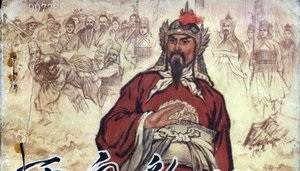
A native of Wei during the Spring and Autumn Period and the Warring States Period. At that time, Ye was an important gateway to the capital of Wei and a strategic location. However, natural and man-made disasters continued, and the people were in dire straits. The King of Wei specially appointed Ximen Bao as the magistrate of Ye County to govern the Ye region. After Ximen Bao arrived in Ye, he paid a private visit incognito and inquired about the sufferings of the people. He used the incident of “He Bo to take a wife” to punish the three elders, court rafters and witches wisely, educate the people with facts and get rid of superstition. At the same time, the twelve canals of the Zhanghe River were built, the floods in the Zhanghe River were controlled, and agricultural production was developed, so that the people of Yedi gradually became rich. Ximen Bao served as an official all his life, he was honest and upright, and benefited the people. After his death, the people of Ye built an ancestral hall for him by the Zhang River to worship him all year round.
2. Zhao Guanghan赵广汉
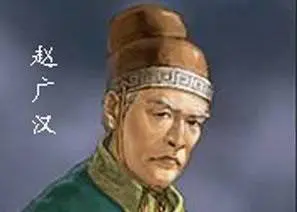
Zidu, a native of Liwu County, Zhuojun County during the Western Han Dynasty. He once served as the governor of Jing Zhaoyin, the prefect of Yingchuan County, and the governor of Jing Zhaoyin. The period when he served as the prefect of Yingchuan County was the best stage of Zhao Guanghan’s early governance. He was not afraid of power and was shrewd and capable. In the first few months after taking office, he did two major things: First, he attacked the power of wealthy families and eased the social conflicts; the second is to strengthen local management and change local bad habits. His reputation spread from this, and in the biography of “Hanshu”, it is said that he is good at handling government affairs as his nature. When Zhao Guanghan served as Jing Zhaoyin, he showed a high sense of responsibility and often stayed up all night to handle various official duties. And he is good at thinking and pays attention to efficiency. During his governance, the politics of the Jingzhao area was clear and clear, and officials and people alike praised him. However, Jing Zhaoyin’s duty is to manage the capital. Because he is under the emperor’s feet, daily handling of government affairs can easily offend the emperor’s relatives and the dignitaries of the dynasty. Therefore, although Zhao Guanghan can be regarded as one of the best administrators in the capital, he still ends up being The fate of being cut in half. During Zhao Guanghan’s tenure as Jing Zhaoyin, he was an upright, honest, and powerful official, and was highly praised by the people.
3. Huang Ba (?-51 BC)黄霸
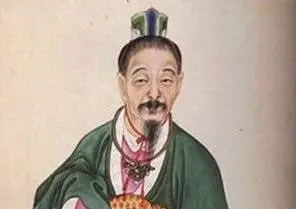
His courtesy name was Cigong, a native of Yangxia, Huaiyang (now Taikang, Henan) during the Western Han Dynasty. Historian Ban Gu commented: “Since the founding of the Han Dynasty, Huang Ba was the first official to govern the people.” When Huang Ba was still young, he set his ambition to be a good official. His political achievements as the prefect of Yingchuan County were most outstanding. Previously, Yingchuan County was a place where powerful landlords dominated one area and the people were displaced. After he took office, he took drastic measures, extended kindness, resettled the refugees, paid attention to farming and mulberry trees, and implemented education. After several years of careful management, peace and stability emerged in Yingchuan. In the Qingming Dynasty, officials governed during the Qingming Dynasty, production developed, and there was a peaceful scene of “people giving way to the fields and not picking up relics on the roads”. Therefore, the emperor issued an edict praising Huang Ba as the best among good officials.
4. Xu Yougong (?-702)徐有功
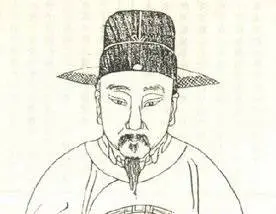
His real name is Xu Hongmin, a native of Chang’an in the Tang Dynasty. He was the most famous official in the Tang Dynasty who specialized in investigating cases. In ancient times, most official positions were mixed with administrative and judicial positions. Only in the imperial court were there dedicated trial officers, but their status in the bureaucracy was extremely low and it was difficult to achieve anything. Although Xu Yougong has served as a full-time trial officer for a long time, he is well-known in history for his courage to strictly abide by the law, speak out directly when guilty, enforce justice and redress hundreds of unjust cases, and save more than 10,000 lives. Xu Yougong successively held the posts of Puzhou Judicial Joining Army, Si Xing Cheng of Si Xing Temple (i.e. Dali Temple), Yuan Wai Lang of Qiuguan (i.e. Ministry of Punishment), and Si Xing Shao Qing of Lang Zhong Shi Yu Shi. When Xu Yougong became an official, it was during the Wu Zhou period. Empress Wu was causing chaos at the top and ruthless officials were snaring the officials below. It was not easy to enforce the law and maintain justice. Because Xu Yougong prosecuted six to seven hundred major cases and saved tens of thousands of lives, he inevitably offended cruel officials and traitorous ministers, and was frequently impeached and put on trial. However, in the end, no evidence was found that he was embezzling money or bending the law for personal gain. He was charged with capital crimes three times, pardoned three times, dismissed from office twice and came back twice. Despite this, he remains determined, does not flatter others, and is committed to enforcing the law and upholding justice. It is precisely because of this that Xu Youfeng became a rare full-time “judge” with a long-lasting name in history, and was praised by people at the time as a good official “unprecedented since ancient times”.
5. Di Renjie (607-700 AD)狄仁杰
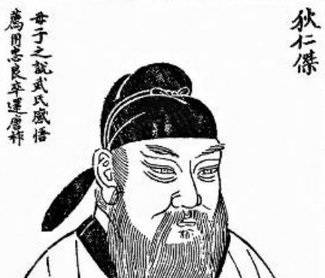
Huaiying, a native of Taiyuan, Bingzhou (now southwest of Taiyuan City, Shanxi Province) in the Tang Dynasty, entered the official career by taking the Ming Jing Ke examination (one of the subjects in the imperial examination system of the Tang Dynasty). After entering politics, he experienced two eras: Tang Gaozong and Wu Zetian. He was first appointed as the Facao of the Governor’s Office of Bingzhou, then as the Dali Cheng, and then as the Shiyushi. He successively served as the governor of Ningzhou and Yuzhou, and the local official and minister. As an official, Di Renjie, as Lao Tzu said, “The saint’s heart is impermanent, and he always takes the people’s heart as his heart.” In order to save the innocent, he dared to go against the will of the monarch, and always maintained his true nature of being considerate of the people and not afraid of power. He always stayed at the top of the court and acted with dignity. The people were worried, and later generations called him “the mainstay of the Tang Dynasty”. He was appointed as Dali Cheng in charge of criminal law. Within one year of taking office, he handled more than 17,000 cases left over by his predecessor. No one among them appealed for justice again, which shows his fairness in handling matters. Later generations compiled many wonderful legends based on this, and even someone in the Netherlands compiled a book “The Legend of Di Renjie’s Case in the Tang Dynasty” based on this theme.
6. Bao Zheng (999-1062 AD)包拯
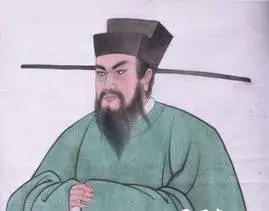
Xiren, named Xiren, was born in Hefei, Luzhou (now Hefei, Anhui). He was the most famous upright official in history. Since he was a teenager, he has been determined to contribute to the country and be “loyal to the death and righteous”. Bao Zheng started his official career as a county magistrate, and later served as magistrate, transfer envoy and other local chief executives; he served as supervisory censor and other supervisory ministers, deputy secretary of the Ministry of Household and other senior officials in charge of national finance, capital deployment and other important military positions; he also served as a diplomatic envoy He was sent as an envoy to Liao State; the most famous one was that he served as a bachelor of Tianzhang Pavilion and a direct bachelor of Longtuge. He was strict with himself all his life and practiced it personally. He served as magistrate of Duanzhou, where he rectified government affairs and cracked down on corruption, and was well received by the people. When he left office, he received a fine inkstone made by the local government as gifts, but he politely declined and “returned without holding an inkstone.” He was selfless throughout his life, never shunned the powerful, and enforced the law like a mountain. We will always strongly advocate for justice to be brought to justice for the illegal acts committed by the emperor’s relatives, eunuchs and dignitaries. Vigorously redressing injustice is the main content that Bao Zheng was deeply praised and praised by the people during his lifetime and after his death. Bao Zheng enjoyed a high reputation at that time and in later generations. Especially after his death, as a typical image of an upright official, he was exaggerated by literary and artistic works of different genres, giving him a magical color. With the progress of international cultural exchanges, Bao Zheng, a historical figure and artistic image, has also won world reputation. Although there is a huge difference between the image of Bao Zheng in historical materials and the image in artistic works, Bao Zheng’s life was not only appreciated by the highest feudal rulers, but also supported and loved by the lower class people who were in dire straits. As an upright official, he was indeed very typical. of.
7. Kuang Zhong (1383-1442 AD)况钟
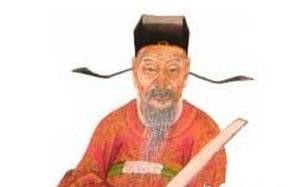
The courtesy name is Bolu and the nickname is Ruyu. He was born in Longgang Prefecture, Jing’an County, Jiangxi Province in the Ming Dynasty. Kuang Zhong made outstanding political achievements throughout his life when he was appointed as the magistrate of Suzhou. He directly reduced the official grain, implemented tax deductions to reduce the burden on the people, and stabilized and developed the economy. At the same time, we should clean up the administration of officials, correct the atmosphere, pay attention to cleaning up the prisons of injustice, and redress the grievances of the people. He arranged a schedule and investigated a case in one county every day, over and over again, without stopping. In the first eight months of taking office, more than 1,500 cases were cleared. In the cases he has tried, no matter how big or small, he can basically ensure that the people do not complain that they are wronged, and the local tyrants do not dare to do evil again. Now, whenever Kuang Zhong is mentioned, people will immediately think of the upright official in the story of “Fifteen Guans” who is willing to take risks, dare to uphold justice and redress the grievances of the people. In addition, he also built water conservancy projects, opened schools, recommended talents and other good things to benefit the country. During his thirteen years in office, Kuang Zhong left office three times and stayed in office three times. He did a lot of practical things for the people of Suzhou. In the end, he fell ill from overwork and died of illness in Suzhou. In order to commemorate Kuang Zhong, local people built ancestral halls in Suzhou and seven counties after his death.
8. Hai Rui (1514-1587 AD)海瑞
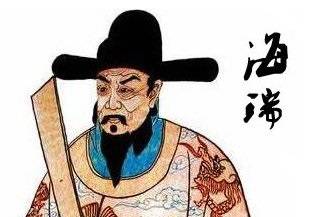
The courtesy name is Ruxian, a native of Qiongshan County, Hainan. The era in which he lived was the transitional period from prosperity to decline of the Ming Dynasty. On the surface, everything is peaceful, but at the moment, there are dangers. When Hai Rui was young, he showed great concern for social issues. When he was serving in the Ministry of Household Affairs, Emperor Jiajing, who was worried about the country’s financial resources and indulged in large-scale construction of temples and temples in various places in order to dissuade superstitious Taoism and seek immortality, resolutely went to the throne as a sixth-rank official with the determination to die. The memorial he submitted this time is the famous “Speaking Straightly about the First Matters in the World”, which was later called “Public Security Essay”. After the memorial was delivered, Hai Rui was imprisoned. Fortunately, Jiajing died of illness soon, and the new emperor was pardoned under the persuasion of Prime Minister Xu Jie. His official position was restored, and he was gradually promoted to the position of governor of the ten prefectures of Yingtian. After that, in order to correct current abuses and enforce strict laws and disciplines, he presided over the formulation of severe punishments such as “eighty strings of hanging” for corruption. He was selfless and showed no mercy to the old prime minister Xu Jie, who had always been kind to him. He returned the 400,000 acres of fertile land that the Xu family had occupied to its original owner, and ordered Xu Jie’s two sons and more than 20 family members who had oppressed good people to follow the law. condemn. Throughout Hai Rui’s official career, he went through the Jiajing, Longqing, and Wanli dynasties, and risked his life many times to give advice. Although it was to safeguard the fundamental interests of feudal rule, he was strict in enforcing the law, eradicating violence, living an honest life, sympathizing with the people, recruiting exiles, and paying attention to The development of production, the construction of water conservancy projects, the restriction of endless exploitation by big landowners, and the reform of backward customs and habits have been widely supported by the people, and their actions have an undeniable role in historical progress.
9. Tang Bin (1627-1687 AD)汤斌
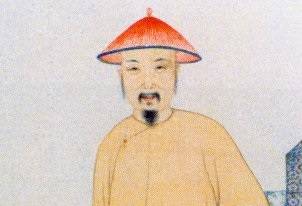
His courtesy name was Kong Bo, and his ancestral home was Suizhou, Baonan (now Sui County). His main political achievements were in the Kangxi Dynasty, ranging from official positions to cabinet bachelor, governor of Jiangning, and minister of the Ministry of Rites. During Tang Bin’s life as an official, in addition to writing books and developing Neo-Confucianism, almost all his energy was focused on the management of river affairs and water transportation, and he also paid attention to reducing the burden on the people, providing disaster relief, promoting benefits and eliminating harm, thus always serving the people. Practicing the Confucian “people-centered” thought of “cultivating one’s moral character, regulating one’s family, governing the country, and bringing peace to the world”, he has made certain contributions to changing the situation from “everywhere is barren and the population is sparse” to “the prosperous age breeds people and never adds wealth” . He was an honest and upright official. When he died, he only left eight taels of silver as his salary, not even enough money to buy a coffin. He was truly an upright official of his generation.
10. Yu Chenglong (1617-1684)于成龙
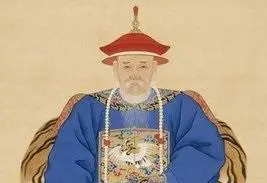
The courtesy name is Beiming, and he was born in Yongning, Shanxi, Qing Dynasty. His posthumous title is “Qing Duan”. He became an official in the 18th year of Shunzhi in the Qing Dynasty (1661) and served successively as county magistrate, prefecture magistrate, magistrate, Taoist official, inspector, chief envoy, governor and governor, Shangshu of the Ministry of War, and bachelor. In his official career of more than 20 years, he was elected as “outstanding” three times. With his outstanding political achievements and honest and hard-working life, he was deeply loved by the people and praised by Emperor Kangxi. He was famous in both the government and the public as “the most honest official in the world”. In the spring of the 20th year of Kangxi’s reign, Emperor Kangxi praised him face to face as “the most upright official of our time.” Yu Chenglong always puts the rectification of officialdom at the top of his work. In view of the practice of bribery, treating guests and giving gifts, he punished the officials who bribed him during the Mid-Autumn Festival to serve as a warning to others. He went to the south of the Yangtze River, where he visited the people on a “miniature” trip. Faced with the situation that “all the officials in the prefectures and counties were ill and the people were ill, but especially in the south of the Yangtze River,” he quickly promulgated the “Pact to Promote Advantages and Eliminate Disadvantages.” He promoted excellence and punished corruption, and was both lenient and strict. People at the time said that wherever he went, “officials would change their behavior based on their expectations.”
Although Yu Chenglong’s official rank is rising higher and higher, his life is becoming more difficult. In order to curb the luxury and corruption of the ruling class, we should take the lead in practicing “those who serve the people must be thrifty and thrifty”. When he went to Zhili, he “made porridge from bran and mixed rice and ate it with his servants”; in the south of the Yangtze River, “he ate a bowl of coarse rice, a spoonful of minced porridge, and only vegetables, and he didn’t know the taste of meat all year round.” The people of Jiangnan therefore affectionately regarded him. Call him “Yu Qingcai”. The officials of the Governor’s Yamen were under strict constraints, “There was no way to get tea and vegetables, so they picked the leaves of locust trees behind the Yamen and ate them every day, causing the trees to become bare.” He lived all over the world and had been an official for more than 20 years. He was alone in the world, without any family members, and only had one wife. , we met again after 20 years of absence. His integrity and hard work were well-known at that time. After his death, he only saw “deserted vegetable soup…old clothes and tattered boots, nothing growing outside” in his room after his death.